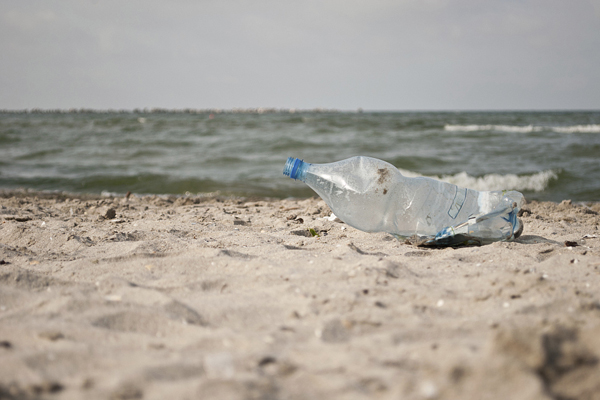UN looks to conserve life on the ocean waves

Plastic in the marine environment is becoming an increasing cause of concern because of its persistence and effect on oceans, wildlife and human beings.
Data provided by the UN Environment Programme shows that the oceans contain at least 51 trillion microplastic particles. Every year, at least 8 million metric tons of plastic ends up in the oceans. That's roughly equivalent to one municipal garbage truck pulling up on a beach every minute and dumping its contents into the water.
More than 600 marine wildlife species - 15 percent of them on the endangered list - have ingested or become entangled in ocean trash, which can enter the human food chain when fish are eaten, UNEP said.
A report released last year by the Ellen MacArthur Foundation concluded that if action isn't taken, the amount of plastic waste in the oceans could jump to the equivalent of two garbage trucks every minute by 2030, rising to four per minute by 2050.
That would result in more plastic than fish in the water and about 99 percent of seabirds will have ingested plastic trash from the oceans.
"It is past time that we tackled the plastic problem that blights our oceans," said Erik Solheim, executive director of UNEP. "Plastic pollution is surfing onto Indonesian beaches, settling on the ocean floor at the North Pole and rising through the food chain onto our dinner tables. We've stood by too long as the problem has gotten worse. It must stop."
On Feb 23, UNEP launched the Clean Seas campaign to urge governments to devise policies to restrict the use of plastics, prompt businesses to minimize plastic packaging and redesign products, and urge people to alter their consumption habits.
By Sept 8, 28 countries had joined the campaign, and the number is expected to rise to 50 by 2018.
For example, Indonesia has pledged to reduce marine litter by 70 percent by 2025, while New Zealand will prohibit the use of plastic microbeads in all cosmetics and personal care items from July 1.
Microbeads - tiny pices of plastic used in some exfoliating products and toothpaste - are too small to retrieve or recycle. They do not biodegrade, and are mistaken by marine life as food.
The United States, Europe and Asia jointly account for 85 percent of global plastic production, so their cooperation will be crucial to the reduction of plastic pollution in the marine environment, the MacArthur Foundation's report said.
Among those countries and regions, China is considered to be one of the major sources of marine plastic pollution, given the growth of mass consumption during the country's rapid rise.
On June 1, 2008, China banned the free distribution of single-use plastic bags in stores and supermarkets, reducing the number in circulation by an estimated 40 billion in just one year, the foundation's report said.
Many Chinese experts anticipate more measures, including improved production technologies for plastic packaging, in a bid to control pollution, both on land and in the oceans.
"It would be useful to promote sorting, dividing used plastic materials from other garbage, as a critical step in China to control sources of plastic pollution," said Xue Yue, an expert in plastic pollution at the China National Resources Recycling Association in Beijing.



























